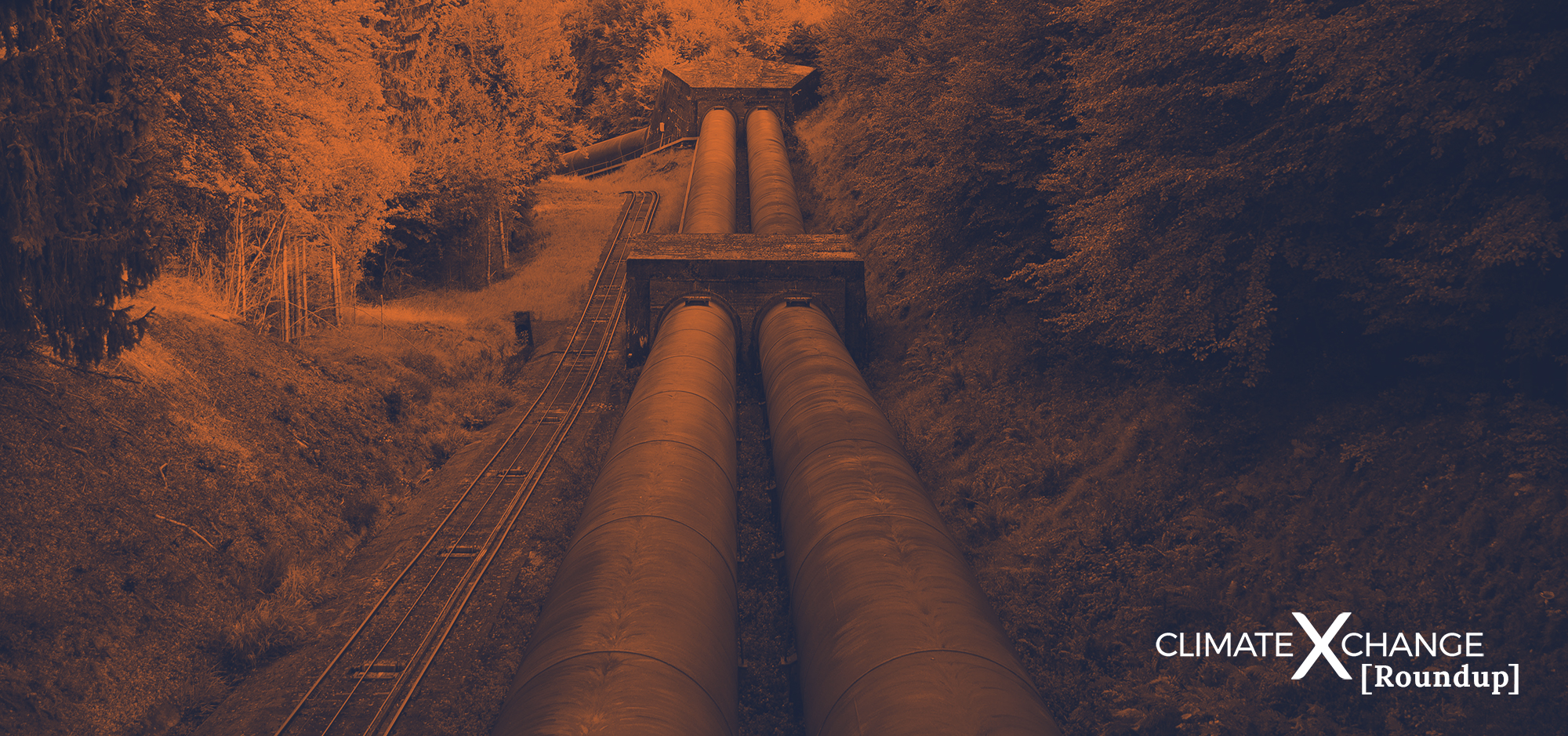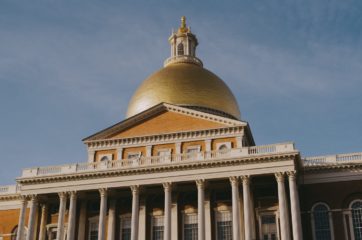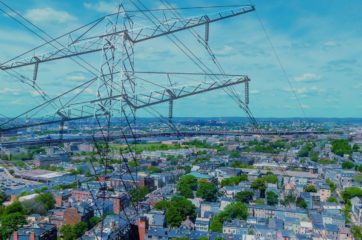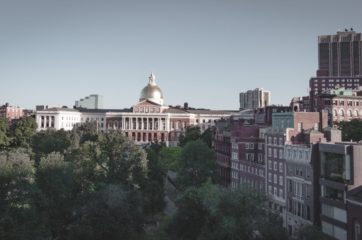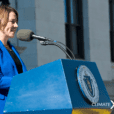[Not a subscriber? Sign up here.]
ALL POLICY IS LOCAL
– Holyoke Mayor Alex Morse calls for halt on new natural gas infrastructure: In a Facebook statement posted during Earth Day yesterday, Holyoke Mayor Alex Morse called for a “halt on new natural gas supply and pipeline infrastructure.” This comes as Holyoke’s gas and electric company seek to complete a deal with Columbia Gas to extend a natural gas pipeline into Holyoke, to meet growing consumer demand. Specifically, Mayor Morse said, “I cannot in good conscience support the building of this pipeline. It constitutes a short-term fix to a long-term problem, and falls short of the moral imperatives of this moment in history.”
Alex Morse, the 30-year-old Mayor of the City of Holyoke, was first elected Mayor in an upset election at age 22. A rising star in the Massachusetts Democratic party, he is widely considered a top contender for Congressman Richard Neal’s western Massachusetts when it eventually opens up.
-WBUR Announces New Environmental Reporting Initiative: On Earth Day yesterday WBUR, one of Boston’s NPR news stations, announced the creation Earthwhile. According to its website, “Earthwhile is WBUR’s environmental team, reporting on climate change, energy, ecology and environmental health in New England and beyond.” The team will include reporters Bruce Gellerman and Miriam Wasser, and be led by Senior Producing Editor Barbara Moran.
– “Green New Deal: Climate justice is a human right say activists in Dorchester” (Jacqueline Tempera, MassLive): “More than 1,000 climate activists met at the Strand Theatre in Dorchester Thursday night urging Congress to take bold and ambitious action with the Green New Deal before it is too late… Pressley, along with Sen. Ed Markey, Boston City Councilor Michelle Wu, and other advocates spoke in support of the legislation. The event was organized by the Sunrise Movement – a youth-led climate coalition- which launched its a ‘Road To A Green New Deal Tour’ in Boston Thursday night.”
– “Earth Day: Climate change and the Pioneer Valley” (Judith Gibson-Okunieff, Daily Collegian): “The things people love about New England – seasons, cold weather, skiing – won’t be the same by 2060… Berggren noted climate change has already started to impact the Pioneer Valley. Last summer, farmers in the area had crops destroyed by rot from the increase in rainfall, causing crop production to be lower than normal.”
– “4 Worcester County Communities to Receive Thousands in Climate Change Grants” (Patrick Sargent, This Week in Worcester): “Four communities in Worcester County were awarded grants to complete climate change vulnerability assessments in their respective municipalities. On Monday, April 22, the Baker-Polito Administration today awarded $725,000 to 27 communities to complete climate change vulnerability assessments and develop resiliency plans through the Municipal Vulnerability Preparedness (MVP) program.”
LOCAL OPINIONS
– “This Earth Day, let’s put wildlife over waste” by Ben Hellerstein and Kara Dodge, via the Patriot Ledger.
– “More than ever, Earth Day needs to be about the next generation” by Nathan Rothstein, via Commonwealth Magazine.
– “For these readers, every day is Earth Day” by Globe readers, via the Boston Globe.
– “An Earth Day wish: Bring hydro cars to Mass.” by the Globe Editorial Team, via the Boston Globe.
BEYOND THE BAY STATE
– “Pennsylvania EQB Accepts Cap-and-Trade Petition” (Noa Dalzell, Climate XChange): “In a historic meeting, Pennsylvania’s Environmental Quality Board (EQB) voted 14-5 in favor of accepting a rulemaking petition to create a cap-and-trade program that will reduce greenhouse gas emissions in the state. The vote gives the Department of Environmental Protection (DEP) 60 days to review the proposal and make a recommendation to the EQB about whether to adopt, reject, or modify the petition.”
OFFSHORE WIND
– “What Does it Take to Bring Offshore Wind to Massachusetts?” (Elizabeth Turnbull Henry, Yale Insights): “Offshore wind could bring cheap power to Massachusetts and help turn the state into a green tech hub. But before the turbines start turning, a variety of stakeholders, including the state’s iconic fishing industry, need to be brought on board. Elizabeth Turnbull Henry ’11, president of the Environmental League of Massachusetts, talked to Yale Insights about making the argument that economic development goes hand in hand with environmental sustainability.”
2020 CLIMATE
– “Warren sets climate litmus test with call to ban drilling on public lands” (Josh Siegel, Washington Examiner): “Sen. Elizabeth Warren’s, D-Mass., promise this week to ban all new oil and gas drilling on federal lands and waters on her first day in the Oval Office sets a new litmus test for Democrats running for president in 2020… While the Democratic field has embraced the ambition of the left-wing Green New Deal platform, candidates had provided few specifics on policies they’d support to combat climate change until Warren released her public land agenda.”
– “Jay Inslee turns up the pressure on the DNC to host a climate debate” (Zoya Teirstein, Grist): “Washington Governor Jay Inslee is betting that he can stand out in a crowded 2020 primary by making climate change the centerpiece of his campaign. His very presence in the field, and the relative expertise with which he talks about thorny topics like nuclear energy and geoengineering, will put pressure on his rivals to clarify their own climate platforms. That is, if Inslee manages to get more than a few words in edgewise. On Earth Day, Inslee penned an open letter to his fellow 2020 Democrats asking them to join him in asking the DNC to hold a climate debate. “This is an urgent problem, and we can’t resolve it with soundbites and one-off questions,” he wrote. The DNC, however, doesn’t seem particularly enthused about the idea.”
– “How 18 Democratic Candidates Responded to a Climate Policy Survey” (By The New York Times): “The New York Times asked all 18 declared Democratic presidential candidates for their views on a number of policy options related to climate change. The candidates unanimously supported recommitting to the Paris Agreement, restoring President Barack Obama’s environmental regulations and increasing funding for clean‐energy research.
But their responses diverged on five other potential policies: increasing the United States’ emissions reduction targets under the Paris Agreement; setting a national renewable energy standard; putting a price on carbon; enacting new regulations beyond Mr. Obama’s; and expanding the use of nuclear energy.” Below are the questions we asked and how the candidates responded.
OUR LOCAL ENVIRONMENT
– “New regulations are a matter of life and extinction for right whales” (David Abel, Boston Globe): “This week, a team of federal and state officials, scientists, fishermen, and others appointed by the National Oceanic and Atmospheric Administration plan to meet in Providence and issue formal recommendations that seek to reduce whale deaths and serious injuries by as much as 80 percent. The recommendations, likely to be adopted by NOAA, could have a significant effect on lobstermen and other fishermen throughout the Northeast. The region’s lobster industry alone takes in more than $500 million a year, consistently making it the nation’s most valuable fishery.”
– “For 46 Years, Pilgrim Nuclear Plant Has Used Water From Cape Cod Bay. How Has It Impacted The Ecosystem?” (Miriam Wasser, WBUR’s Earthwhile): “The Pilgrim Nuclear Power Station in Plymouth pumps about a half-billion gallons of water from Cape Cod Bay into the plant every day. The water cycles continuously, passing through the plant’s condenser, and returning to the bay about 10 minutes later — and 30 degrees warmer. Ever since Pilgrim began producing power in 1972, local environmentalists have argued the cooling system harms Cape Cod Bay… As Pilgrim prepares to close at the end of May, here are answers to some questions about the plant’s water use and how it impacts the bay.”
– “This Earth Day, Here’s What You Should Know About Endangered Species In Mass.” (Kaitlyn Locke, WGBH): “Monday marks the 49th annual Earth Day, and organizers and participants are hoping to raise awareness about endangered species… In Massachusetts alone, there are 215 endangered plant and animal species, according to a list created by the Massachusetts Endangered Species Act (MESA), and that list is ever-changing.”
GLOBAL CLIMATE CHANGE
– “Climate change has increased world economic inequality, study says” (Martin Finucane, Boston Globe): “A new study from Stanford University says global warming has increased the wealth gap between the world’s countries by enriching cooler, wealthier countries and dragging down growth in hotter, poorer countries. The study found that “most of the poorest countries on Earth are considerably poorer than they would have been without global warming,” climate scientist Noah Diffenbaugh, lead author of the study, said in a statement from Stanford.”
– “Americans’ energy use surges despite climate change concern” ( Ellen Knickmeyer and Seth Borenstein): “Americans burned a record amount of energy in 2018, with a 10% jump in consumption from booming natural gas helping to lead the way, the U.S. Energy Information Administration says. Overall consumption of all kinds of fuels rose 4% year on year, the largest such increase in eight years, a report this week from the agency said. Fossil fuels in all accounted for 80% of Americans’ energy use. That’s despite increasingly urgent warnings from scientists that humans are running out of time to stave off the harshest effects of climate change by cutting greenhouse gas emissions from consuming coal, oil and natural gas.”
– “7 things we’ve learned about Earth since the last Earth Day” (Umair Irfan, Vox): “This Earth Day, it’s worth taking stock of what we keep learning about the spinning world we inhabit and how we’re responding to crises at hand. In keeping with the tradition started by former Vox writers Brad Plumer and Joseph Stromberg, here are seven of the coolest, most intriguing, and most alarming things we’ve learned about the Earth since the last Earth Day.”
NOW WHAT?
– Now What is a multimedia project of Climate XChange that explores how we can best craft our message on climate change and its impacts. Each week CXC’s Maria Virginia Olano sits down with advocates, policymakers, and experts to get a fresh new outlook on the future and how they are shaping the conversation around climate change. Listen to all the episodes here.
– “Showing People the Research Doesn’t Work, Here’s What to do Instead” (Maria Virginia Olano, Climate XChange): “Andrew Jones is an expert on international climate and energy issues. He is a system dynamics modeler, keynote speaker, and designer of simulation-based learning environments. He is also the co-founder and co-director of Climate Interactive, an organization with a mission to provide better ways for people to understand the complex and interconnected issues of climate change, through experiential learning. On this week’s episode of the podcast, I spoke with him about the motivations that led him to start his non-profit, and why he now understands that we need to go beyond simply showing people the research.”
MORE OPINIONS
– “Love it or hate it, Earth Day’s just not what it used to be. What happened?” by Kate Yoder, via Grist.
– “A Market-Driven Green New Deal? We’d Be Unstoppable” by Amory Lovins and Rushad Nanavatty, via the New York Times.
FOR MORE CONTENT from us subscribe to the Climate XChange Newsletter(Fridays, weekly) or the Climate Action Business Association Newsletter (Fridays, bi-weekly).

